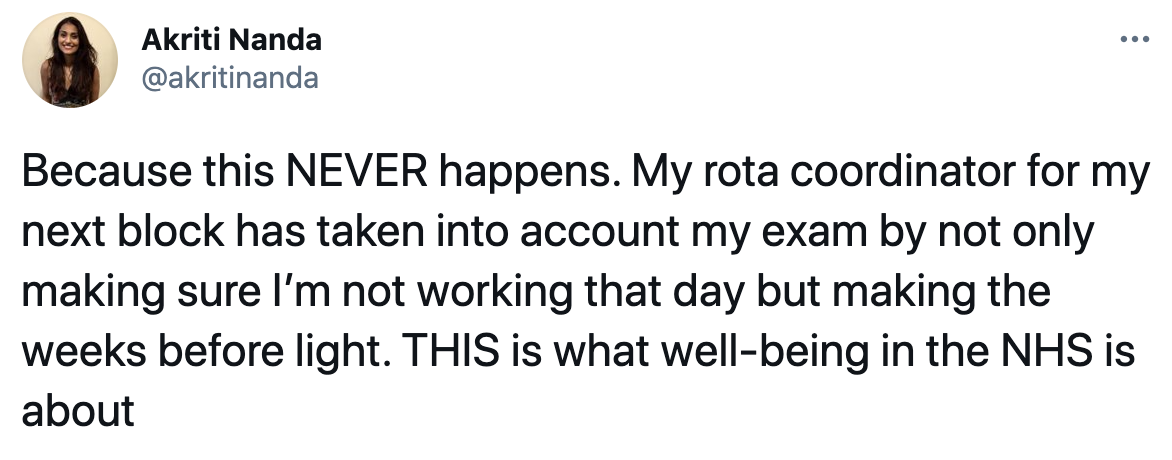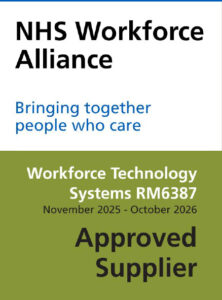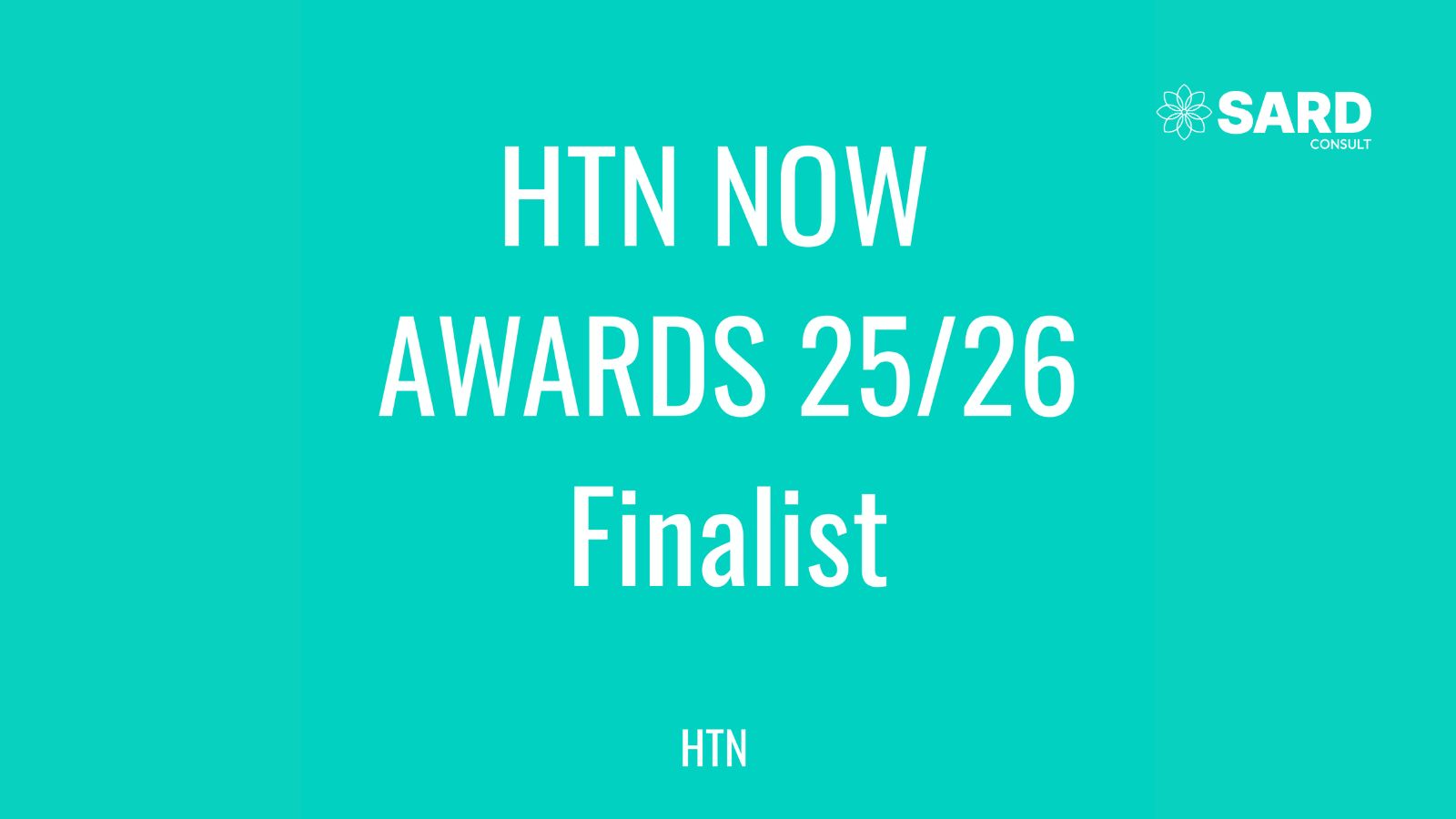eRostering – The Solution
eRostering – The Solution

Rostering is typically a thankless job, especially when it goes wrong. Now, when it goes right – it’s almost as if the impossible has been made possible.
Wellbeing in the workplace is crucial, arguably one of the most important parts of any job. During this past year, the NHS has felt the squeeze and staff have been asked to work through the toughest of circumstances. Rostering has played a significant role in making the NHS work efficiently and effectively these past months. And from what we’ve heard, it’s a rarity for it to go smoothly.
Recently, Akriti Nanda, who is an F2 and moving onto her sixth rotation, tweeted a pleasantly surprising tale where her rostering coordinator took into account her upcoming exam, but also understood the impact of the weeks prior.

We reached out to Akriti to see how she has been impacted by rostering.
Q: You’ve experienced the good and the bad of rota coordination. Can you expand on specific scenarios?
A: The Good – this experience has been the best experience where I informed my rota co-ordinator (well in advance I must say) of my exams, conferences and other personal dates I would like to avoid working. Not only did they take into account all my requests but they also tried to make the weeks preceding my exam light or shifts that I could take annual leave.
There was clear communication of how they were taking account of my requests and these were done in a timely manner so I could plan my life. In fact, I have already put in all my annual leave for this rotation and it has all been approved. I can now enter the rotation with peace of mind that I will have adequate rest and leave. I have also been told that if needed I can cancel and swap around my leave (allowing for some flexibility if things like lockdown guidance changes!). The trust is blessed with the ability to offer well paid locums, which allows regular staff to take leave if needed. However this shows that staff wellbeing is at the centre of their policies.
The Bad – the common theme has always been poor communication, last minute rotas, inflexibility to take leave that often requires a convoluted series of swaps. I understand that in medicine we are a team, but swapping shifts with colleagues should not be a necessary element to get our leave when we want it. In other rotations there has been a lack of flexibility in the rota or it would be up to the leave requester to ensure that there is adequate cover.
Q: You mentioned that wellbeing is extremely important for those who work in the NHS (and beyond). What ways can the NHS help improve wellbeing for their workforce?
A: Every year we see headlines about NHS doctors and other healthcare professionals leaving for better conditions in other countries. Wellbeing is exceptionally important if we want to retain our staff. The fact that some struggle to get leave for exams needed for progression, mandatory courses or even important events such as weddings is not going to make people feel they work in a place that cares about them. I am so glad that I could share my great experience but it is a sign that the tweet was so popular because this is not the standard. In an ideal world nobody should have to. It is such a key element to job satisfaction.
We’re hoping with SARD’s eRostering system, stories like Akriti’s will become less of a ‘unicorn’. We use our AI-driven solver to work out the kinks and ensure that individual preferences are accounted for when building a roster, so that staff wellbeing is kept at the forefront of scheduling. Our system can be used for all work groups – consultants, junior doctors, nurses and all other staff.
Our eRostering system removes the complicated maths from the process, giving administrators time to focus on what they want their rosters to achieve, not how to make them work, saving time and money and contributing to a happier workforce with a better work-life balance.
To receive a demo of SARD eRostering, or any of our other products please contact us at sales@sardjv.co.uk.
Recent Articles

Registered address
SARD JV Limited
Unit 76, Innovation Centre
University Road, Canterbury
CT2 7FG



A joint venture with Oxleas NHS Foundation Trust.
Registered in England and Wales with company number 07916735. VAT No. 131901840
Designed and built By Tweak Marketing
Privacy Policy



